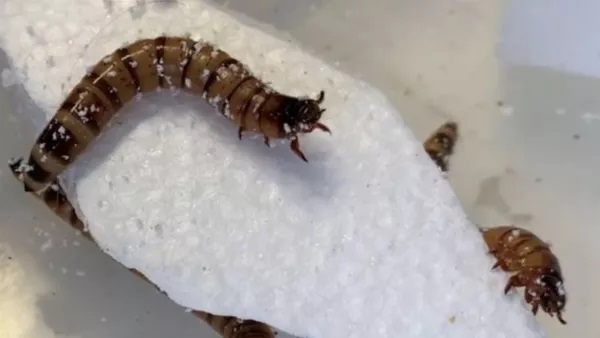
A plastic-eating worm that could be key to recycling
The scientific project does not aim to use millions of worms for industrial recycling processes, but to find the best way to use the enzymes.
According to Chris Rinke, one of the authors of the study and an expert from the University of Queensland, these beetle larvae are able to survive on polystyrene throughout their life cycle.
"We wanted to make sure that after eating polystyrene they can develop into pupae (similar to butterfly chrysalis) and beetles," Rinke told EFE.
These insects can reach a maximum size of 5 to 6 cm and are native to Central and northern South America. The scientist in charge of the research describes these animals as recycling "mini-plants" that crush this plastic material with their mouths and then feed the bacteria in their gut.
The characteristics of the stomach of these larvae can contribute to solving one of the most serious problems of the global economy, which produced about 360 million tons of plastic in 2018, a material that is often washed into the oceans and causes a strong impact on ecosystems.
While the ability of these insects to ingest plastic is not new to science, this research brings the use of a new metagenomic technique by which "all the DNA from the stomach microbes is extracted for sequencing and cataloging all the encoded enzymes" and the comprehensive analysis of the entire enzyme community, Rinke explained.
The scientific project does not aim to use millions of such worms for large-scale industrial recycling processes, but rather to find ways to make the best use of enzymes in processes to treat plastics.
"We want to replicate what happens in the stomach of the worm," Rinke said, adding that he hopes to produce the enzymes and extract the proteins in the lab on a large scale "for more efficient use" five to 10 years from now.
You can see the original news at: https://expansion.mx/mundo/2022/06/13/gusano-come-plastico-clave-para-el-reciclaje?_amp=true
